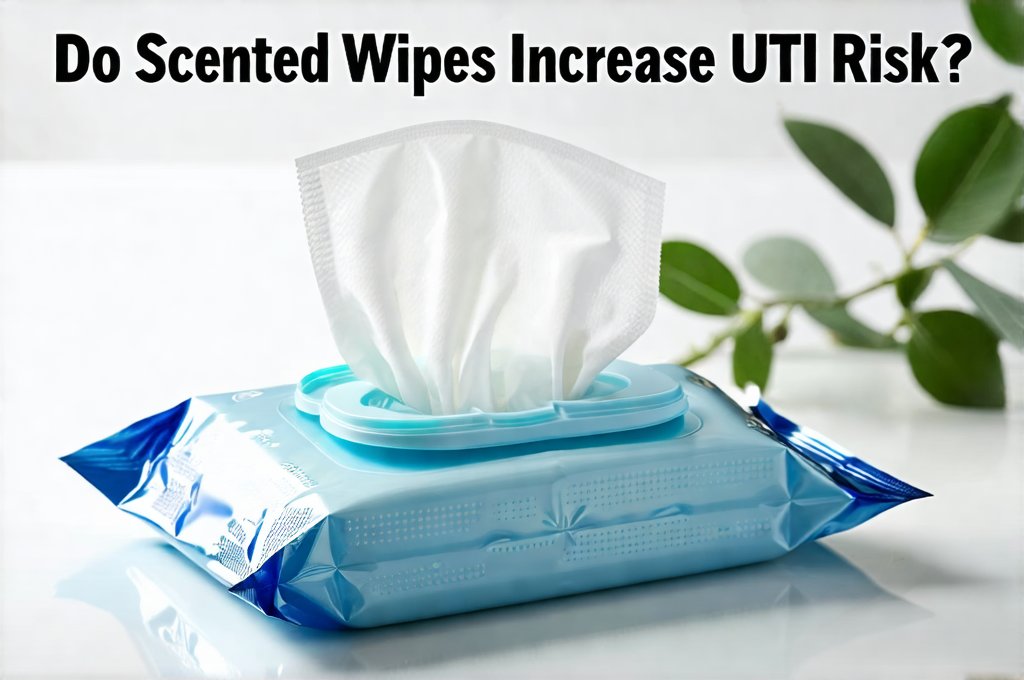The seemingly innocuous scented wipe – a staple in many households for quick cleanups and personal hygiene – has recently become the subject of growing concern regarding urinary tract infections (UTIs). While convenient, these wipes, particularly those containing fragrances and preservatives, may disrupt the delicate bacterial balance of the perineal area, potentially increasing susceptibility to UTIs. This issue isn’t new; discussions have been ongoing among healthcare professionals for some time, but recent social media trends and increased awareness have brought it sharply into public focus. Understanding the potential link between scented wipe use and UTI risk requires a nuanced exploration of anatomy, bacterial ecology, and product composition.
UTIs are overwhelmingly more common in women due to their shorter urethra, which makes it easier for bacteria from the gastrointestinal tract to reach the bladder. However, anyone can experience UTIs, and factors beyond anatomical differences play a significant role in infection rates. The perineal area naturally harbors a diverse microbiome – a community of microorganisms that coexist peacefully and provide protection against harmful pathogens. Disrupting this balance, whether through harsh soaps, douching, or frequently using scented wipes, creates an opportunity for pathogenic bacteria like E. coli to colonize and ascend into the urinary tract, leading to infection. It’s crucial to recognize that correlation doesn’t equal causation; simply using a scented wipe doesn’t guarantee a UTI, but it can contribute to conditions that make one more likely. If you experience frequent UTIs, understanding constant low-level uti symptoms could be helpful.
Understanding the Microbiome & UTIs
The human microbiome is an incredibly complex ecosystem, and its health directly impacts overall well-being. In the context of UTIs, the vaginal (and perineal) microbiome plays a critical role in maintaining urinary tract health. A healthy vaginal microbiome is typically dominated by Lactobacillus species, which produce lactic acid, creating an acidic environment that inhibits the growth of harmful bacteria. This natural acidity acts as a defense mechanism against ascending infections. Scented wipes, however, can interfere with this delicate balance. – The fragrances themselves can be irritating to sensitive tissues, leading to inflammation and disruption of the microbiome. – Preservatives and other chemicals found in many wipes can also have antibacterial properties, potentially killing off beneficial Lactobacillus strains alongside harmful ones. This creates a void that allows opportunistic pathogens to flourish.
The urethra, being relatively short in women, provides a direct pathway for bacteria to travel from the perineal area to the bladder. When the protective microbiome is compromised, this pathway becomes more vulnerable. Even seemingly mild irritation caused by scented wipes can compromise the uroepithelial cells – the cells lining the urinary tract – making them more susceptible to bacterial adhesion and subsequent infection. It’s important to remember that UTIs aren’t always caused by sexual activity; while it’s a risk factor, everyday hygiene practices can also contribute significantly, especially for those with recurrent infections or compromised immune systems. Those with bladder prolapse may be more susceptible to UTIs as well.
Alternatives & Minimizing Risk
Given the potential risks associated with scented wipes, exploring alternative hygiene options is essential. Plain water and gentle, unscented soap are often the safest choices for perineal cleaning. – Water-only cleansing is particularly effective and avoids introducing any potentially disruptive chemicals to the area. – If soap is used, opt for a mild, pH-balanced formula specifically designed for sensitive skin. Avoid harsh detergents, fragrances, and dyes. – For individuals prone to UTIs, consider using wipes formulated without fragrance or preservatives, though even these should be used sparingly.
Beyond hygiene practices, several lifestyle modifications can help minimize UTI risk. – Staying well-hydrated is crucial; adequate fluid intake helps flush out bacteria from the urinary tract. – Urinating after sexual activity can also help prevent ascending infections. – Avoiding douching and harsh feminine hygiene products is essential for maintaining a healthy vaginal microbiome. – These practices disrupt the natural balance of microorganisms, increasing susceptibility to UTIs. Ultimately, proactive steps towards gentle and mindful hygiene are key to protecting urinary tract health.
The Role of Fragrance & Preservatives
Fragrances in wipes aren’t just cosmetic additions; they can be complex mixtures of hundreds of chemicals, some of which may be irritants or allergens. Even “natural” fragrances can contain compounds that disrupt the microbiome. Many preservatives commonly used in wipes – such as parabens and formaldehyde-releasing agents – have also been linked to irritation and potential hormonal disruption. These ingredients, while intended to extend shelf life or enhance scent, can inadvertently compromise the delicate balance of microorganisms in the perineal area, increasing vulnerability to infection. The issue is compounded by a lack of transparency regarding ingredient lists; many wipes don’t disclose the full composition of their fragrances, making it difficult for consumers to make informed choices.
The impact of these chemicals extends beyond immediate irritation. Repeated exposure can lead to changes in the microbiome, potentially creating a chronic state of dysbiosis – an imbalance between beneficial and harmful bacteria. This makes individuals more susceptible to recurrent UTIs even after switching to alternative hygiene products. Research into the long-term effects of wipe ingredients on the vaginal microbiome is ongoing, but existing evidence suggests that minimizing exposure is a prudent approach, especially for those with a history of urinary tract infections or sensitivities.
Recurrent UTIs & Wipe Usage
Individuals who experience recurrent UTIs (defined as two or more infections within six months, or three or more within a year) are particularly vulnerable to the potential negative effects of scented wipes. A compromised microbiome can contribute to a cycle of recurring infection, making it difficult to break free from this pattern. – Probiotic supplementation may be beneficial in restoring a healthy microbial balance, but should be discussed with a healthcare professional. – Avoiding wipes altogether and opting for gentle cleansing methods is strongly recommended.
The use of scented wipes isn’t necessarily the sole cause of recurrent UTIs, but it can exacerbate existing vulnerabilities. Other factors, such as hormonal changes, diabetes, and structural abnormalities in the urinary tract, also play a role. However, addressing hygiene practices – including eliminating or minimizing wipe usage – is an important step in managing recurrent infections. Working closely with a healthcare provider to identify underlying causes and develop a personalized treatment plan is crucial for long-term UTI prevention. If your UTI comes back after 2 weeks, seek medical advice.
What Does Research Say?
While definitive large-scale studies specifically linking scented wipes directly to increased UTI rates are still emerging, existing research supports the concern. Several smaller studies have demonstrated that fragrances can disrupt the vaginal microbiome, creating conditions favorable for bacterial growth. Studies analyzing wipe composition reveal a high prevalence of potentially irritating chemicals and preservatives. Furthermore, anecdotal evidence from healthcare professionals consistently points to a correlation between scented wipe usage and increased UTI incidence in their patients – particularly those prone to recurrent infections. The challenge lies in establishing definitive causality due to the multifactorial nature of UTIs and the difficulty of controlling for all contributing variables. However, based on current evidence, it’s reasonable to advise caution regarding the use of scented wipes, especially for individuals at risk or with a history of urinary tract infections. More research is needed to fully understand the extent of this link and inform public health recommendations. Can swimming pools increase UTI risk? This should be considered as well.





















